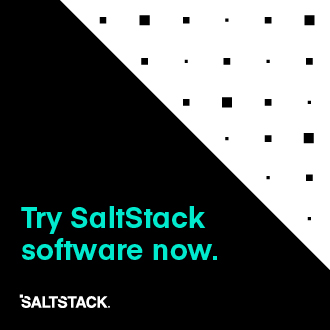salt.modules.chroot module¶
- maintainer
Alberto Planas <aplanas@suse.com>
- maturity
new
- depends
None
- platform
Linux
-
salt.modules.chroot.apply_(root, mods=None, **kwargs)¶ Apply an state inside a chroot.
This function will call chroot.highstate or chroot.sls based on the arguments passed to this function. It exists as a more intuitive way of applying states.
- root
Path to the chroot environment
For a formal description of the possible parameters accepted in this function, check state.apply_ documentation.
CLI Example:
salt myminion chroot.apply /chroot salt myminion chroot.apply /chroot stuff salt myminion chroot.apply /chroot stuff pillar='{"foo": "bar"}'
-
salt.modules.chroot.call(root, function, *args, **kwargs)¶ Executes a Salt function inside a chroot environment.
The chroot does not need to have Salt installed, but Python is required.
- root
Path to the chroot environment
- function
Salt execution module function
CLI Example:
salt myminion chroot.call /chroot test.ping salt myminion chroot.call /chroot ssh.set_auth_key user key=mykey
-
salt.modules.chroot.create(root)¶ Create a basic chroot environment.
Note that this environment is not functional. The caller needs to install the minimal required binaries, including Python if chroot.call is called.
- root
Path to the chroot environment
CLI Example:
salt myminion chroot.create /chroot
-
salt.modules.chroot.exist(root)¶ Return True if the chroot environment is present.
-
salt.modules.chroot.highstate(root, **kwargs)¶ Retrieve the state data from the salt master for this minion and execute it inside the chroot.
- root
Path to the chroot environment
For a formal description of the possible parameters accepted in this function, check state.highstate documentation.
CLI Example:
salt myminion chroot.highstate /chroot salt myminion chroot.highstate /chroot pillar='{"foo": "bar"}'
-
salt.modules.chroot.sls(root, mods, saltenv='base', test=None, exclude=None, **kwargs)¶ Execute the states in one or more SLS files inside the chroot.
- root
Path to the chroot environment
- saltenv
Specify a salt fileserver environment to be used when applying states
- mods
List of states to execute
- test
Run states in test-only (dry-run) mode
- exclude
Exclude specific states from execution. Accepts a list of sls names, a comma-separated string of sls names, or a list of dictionaries containing
slsoridkeys. Glob-patterns may be used to match multiple states.
For a formal description of the possible parameters accepted in this function, check state.sls documentation.
CLI Example:
salt '*' chroot.sls /chroot stuff pillar='{"foo": "bar"}'

